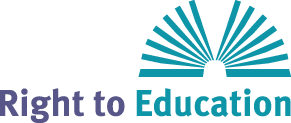This volume illuminates the drafting process that led to the publication of General Comment No. 7, on ‘Implementing Child Rights in Early Childhood’, by the UN Committee on the Rights of the Child. Following the Introduction, Section I describes the Day of General Discussion 2004 on ‘Implementing Child Rights in Early Childhood’. Section II contains the text of General Comment No. 7, along with a brief analysis. Section III offers, in extracted form, the texts submitted by various organisations and other interested parties to the Committee during the Day of General Discussion. Section IV provides texts that supply additional insights into the background to the General Comment. Section V reproduces the Convention on the Rights of the Child.
This document lists the international instruments that refer to the right to education of early childhood care and education (ECCE).
Ce document énumère les instruments internationaux qui se réfèrent au droit à l'éducation relatif à l'éducation et la protection de la petite enfance (EPPE) .
This documented was submitted to the UN Special Rapporteur on the right to education in February 2023, in response to a call for contributions for a report she is developing for the UN Human Rights Council.
Ce document de recherche et d’orientation étudie certains aspects du droit à l'éducation qui pourraient nécessiter un ancrage plus solide dans le cadre normatif international et une expansion potentielle pour le 21st siècle. L'éducation numérique, la mobilité croissante des personnes, l'évolution démographique, le changement climatique et les attentes en matière de possibilités d'apprentissage tout au long de la vie ne sont que quelques-uns des domaines qui mettent à l'épreuve les limites du cadre normatif international existant. Aboutissement d'un cycle de consultations ouvertes, de séminaires et d'événements internationaux, ainsi que de recherches, ce document présente quelques-unes des tendances émergentes, des défis et des normes qui ont été discutés.
This policy-oriented research paper investigates some of the aspects of the right to education that might require a stronger footing in the international normative framework and potential expansion for the 21st century. Digital education, increasing human mobility, changing demographics, climate change, and expectations of opportunities for learning throughout life are just a few of the areas that are testing the limits of the existing international normative framework. The culmination of a round of open consultation processes, as well as international seminars and events, and research, this paper presents some of the emerging trends, challenges, and norms that have been discussed.
